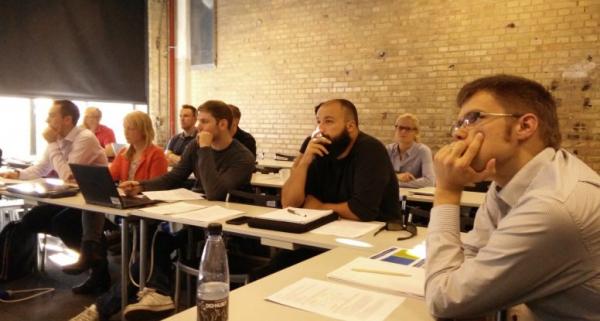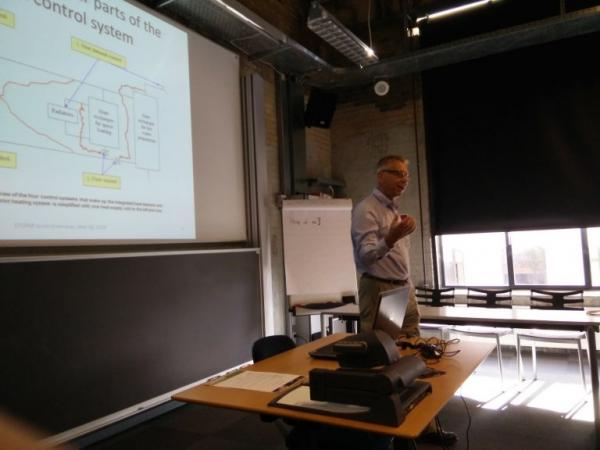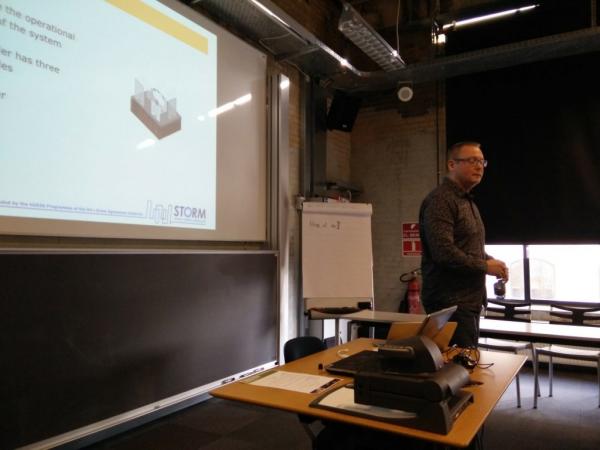The STORM consortium organised a technical workshop on control of district heating and cooling systems on 26 September in the framework of the 2nd International Conference on Smart Energy Systems and 4th Generation District Heating, taking place on 27-28 September 2016 in Aalborg, Denmark. About 15 researchers and professionals from the whole of the EU participated.
Prof. Sven Werner from Halmstad University started the workshop with a presention on the current state-of-the-art district heating network control principles. In current networks, the control mainly consists of four independent, decentralised control mechanisms, whereby no interaction occurs between the consumers (buildings) and the heat source.
Then, Dirk Vanhoudt from STORM partner VITO/EnergyVille presented the STORM project, and in what way it goes a step beyond the state-of-the-art. Also, a status of the research was given. In STORM, the main objective is to ‘connect’ the existing control systmes in such a way that the overall performance of the network is optimised.
Christian Johansson from STORM partner NODA elaborated on the self-learning optimisation algorithms used to achieve this optimal control and on the first results of tests in the Rottne demonstration network. Furthermore, he discussed the trend of digitalisation of district heating networks, and the opportunities it can bring. Also the need to translate rough measurement data into information that (non-)technical people can interpret, and finally into knowledge, was explained.
In the final interactive part of the workshop, new control ideas and future solutions needed for a wider application and replication of these controllers were discussed with the audience.



